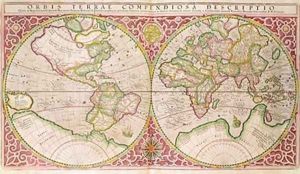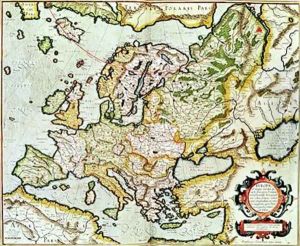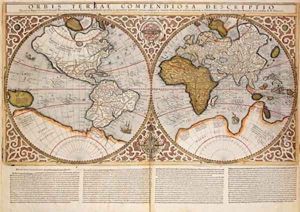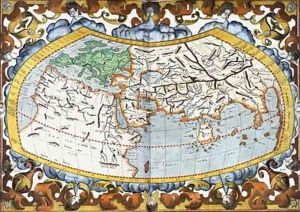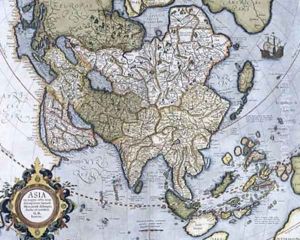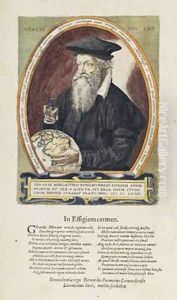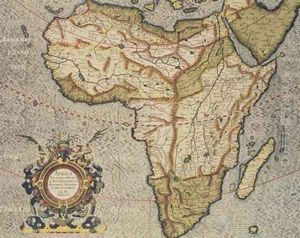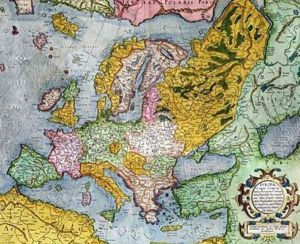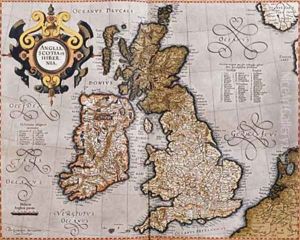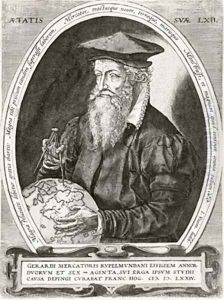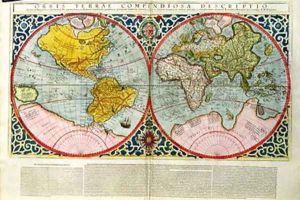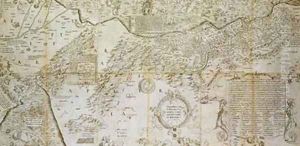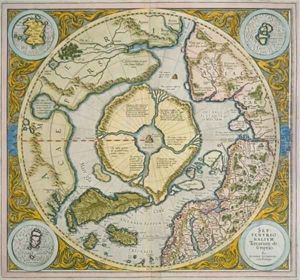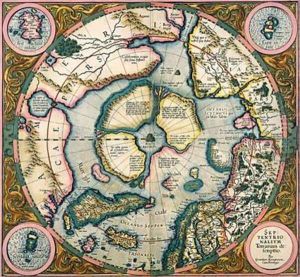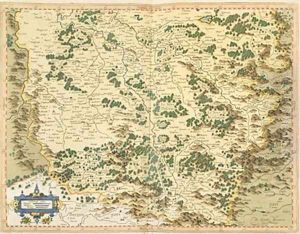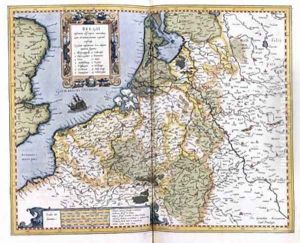Gerard Mercator Paintings
Gerardus Mercator was a prominent Flemish geographer, cartographer, and cosmographer, born on March 5, 1512, in Rupelmonde, in the Habsburg Netherlands (present-day Belgium). He is most renowned for creating the 1569 world map based on a new projection that represented sailing courses of constant bearing as straight lines—an innovation that profoundly influenced the future of mapmaking and was later termed the Mercator projection.
Mercator's early education was in 's-Hertogenbosch and Leuven, where he immersed himself in classical studies, philosophy, and theology. However, his profound interest in cosmography and geography led him to study under Gemma Frisius at the University of Leuven, where he also learned mathematics and the making of scientific instruments.
In 1536, Mercator produced his first map, of Palestine, and soon after, a map of the world in 1538. His early works already showed signs of the meticulous detail and the emphasis on accuracy that would characterize his later work. Mercator's reputation grew, and by the 1550s, he was producing globe pairs and detailed maps of countries within Europe. His ambition was to produce a comprehensive collection of maps to illustrate all parts of the world, a project that would culminate in his most famous work, the Atlas, or Cosmographic Meditations upon the Fabrication of the World and the Fabrication of Figures, first published in 1595 after his death.
Throughout his life, Mercator faced religious persecution due to his Protestant faith, at a time when the Habsburg Netherlands was under stringent Catholic rule. In 1544, he was arrested for heresy but was released after seven months due to lack of evidence. This event prompted his move to Duisburg in the Duchy of Cleves in 1552, where he continued his work in relative peace, contributing significantly to the intellectual and scientific life of the city.
Gerard Mercator passed away on December 2, 1594, in Duisburg. His legacy endures not only through the Mercator projection, which became the standard for nautical maps, but also through his contributions to the art of cartography, making maps more accurate and more accessible to navigators and scholars alike. Mercator's work paved the way for future generations of mapmakers, establishing principles that remain foundational to the field.
